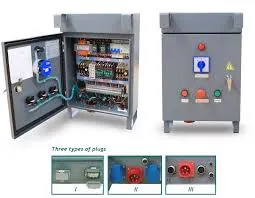Understanding the Price of PVC Tape for Electrical Insulation
When it comes to electrical insulation, one of the most widely used materials is PVC (Polyvinyl Chloride) tape. Known for its versatility, durability, and insulating properties, PVC tape is a crucial component in both residential and industrial electrical applications. However, the cost of PVC tape can vary significantly based on several factors, making it essential for both contractors and DIY enthusiasts to understand the pricing dynamics.
Factors Influencing the Price of PVC Tape
1. Material Quality The quality of the PVC material used in manufacturing the tape is a primary determinant of its price. Higher quality tapes, which provide better insulation and durability, typically come at a higher cost. For example, tapes with enhanced UV resistance or temperature tolerance may be more expensive but offer greater longevity and reliability.
2. Width and Thickness PVC tape is available in various widths and thicknesses. Wider and thicker tapes tend to cost more than their narrower counterparts due to the increased amount of material used in production. Depending on the specific application, users may choose different sizes, impacting their overall expenditure.
3. Brand Reputation Well-known brands often charge premium prices because they have established a reputation for high-quality products. While this can lead to higher upfront costs, many professionals argue that investing in reputable brands saves money in the long run due to fewer failures and the potential need for repairs.
4. Packaging and Quantity The form in which PVC tape is sold can significantly influence its price. Tape sold in bulk or larger rolls typically comes at a reduced price per unit compared to smaller packs. Buyers may find that purchasing larger quantities can lead to substantial savings for large projects.
price pvc tape for electrical insulation

5. Market Trends Like any other product, the price of PVC tape can fluctuate based on market demand and supply conditions. For instance, during peak construction seasons or following significant electrical projects, demand may surge, leading to temporary price increases.
6. Geographical Differences Prices can also vary by region due to factors like transportation costs, local demand, and available suppliers. Buyers in urban areas with a high concentration of electrical projects might find more competitive pricing due to increased competition, while rural areas may see higher prices due to limited availability.
Average Price Range
As of my latest data, the price of PVC tape for electrical insulation often falls between $0.50 to $3.00 per roll, depending on the factors previously mentioned. Budget options may be available for as low as $0.30 per roll, particularly in bulk purchasing situations. Conversely, specialized or high-performance PVC tapes can exceed $5.00 per roll.
Conclusion
When selecting PVC tape for electrical insulation, understanding the pricing structure is crucial for making an informed purchase. While it may be tempting to choose the cheapest option available, considering factors such as quality, application requirements, and brand reputation will ultimately lead to better results and potentially lower overall costs. By weighing these factors and choosing wisely, both contractors and DIY enthusiasts can ensure that they are getting the best value for their investment in electrical insulation materials. In a field where safety and efficacy are paramount, the right choice can make a significant difference.
-
XIANGFAN Rubber Tape-Ultimate Solutions for All Your Insulation NeedsNewsJun.24,2025
-
XIANGFAN Rubber Tape-Protection for Industrial and Residential ApplicationsNewsJun.24,2025
-
XIANGFAN Rubber Tape: Superior Safety and Sealing for Demanding EnvironmentsNewsJun.24,2025
-
XIANGFAN Rubber Tape: Reliable Solutions for Every Electrical ChallengeNewsJun.24,2025
-
XIANGFAN Electrical & Industrial Tape: Powering Reliability Across IndustriesNewsJun.24,2025
-
XIANGFAN Electrical & Industrial Tape: Excellence in Every ApplicationNewsJun.24,2025
